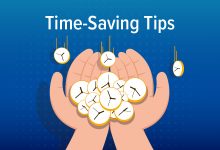The Potential Success of Andragogy
Introduction
In the landscape of education and learning, the term “andragogy” often emerges in discussions about adult education. Unlike pedagogy, which focuses on teaching children, andragogy pertains specifically to methods and practices used in teaching adults. The concept, popularized by Malcolm Knowles in the 20th century, asserts that adult learners are distinct from children in their approach to learning and necessitate different instructional strategies. Understanding the potential success of andragogy involves examining its foundational principles, effectiveness, and applications in various contexts.
Understanding Andragogy
Andragogy is derived from the Greek words “aner” (adult) and “agogos” (leader or guide). It emphasizes the need for adult learners to be self-directed, draw on their life experiences, and be motivated by internal factors rather than external rewards. Malcolm Knowles, a pivotal figure in the development of andragogy, outlined several key assumptions about adult learners:
-
Self-Concept: As individuals mature, they transition from being dependent learners to self-directed ones. Adults prefer to take responsibility for their own learning.
-
Experience: Adults bring a wealth of experience to the learning process, which can be a resource for learning. This experience shapes their learning and provides a practical context for new information.
-
Readiness to Learn: Adults are motivated to learn when they perceive that the knowledge or skills will help them handle real-life situations or solve practical problems.
-
Orientation to Learning: Adults are more problem-centered than subject-centered. They prefer learning that is immediately applicable to their personal or professional lives.
-
Motivation: While adults can be motivated by external factors such as promotions or pay raises, they are more often driven by internal factors, such as personal satisfaction or self-improvement.
Effectiveness of Andragogy
The effectiveness of andragogy as an educational model can be assessed through its application in various settings:
-
Workplace Training and Development: In corporate settings, andragogy has proven effective in training programs. Adult learners in the workplace often seek to improve their skills for career advancement or job performance. Andragogical approaches, such as experiential learning and problem-solving activities, align well with their goals and enhance the relevance and applicability of the training.
-
Higher Education: In higher education, particularly in adult education programs, andragogical principles are widely applied. Programs designed for working professionals often include elements such as flexible scheduling, practical case studies, and collaborative learning. These approaches cater to the adult learner’s need for practical, real-world applications of their studies.
-
Community Education: Andragogy is also utilized in community education programs. For example, workshops and courses offered to adults in community centers or online platforms often employ andragogical strategies to engage learners. These programs are designed to be immediately relevant to learners’ personal interests or community needs.
-
Online Learning: The rise of online learning platforms has further highlighted the success of andragogical principles. Online courses often offer self-paced learning options, opportunities for self-assessment, and practical application of knowledge, catering to the self-directed nature of adult learners.
Challenges and Criticisms
Despite its potential, andragogy is not without its challenges and criticisms:
-
Diverse Needs: Adult learners come from diverse backgrounds and have varying levels of prior knowledge and experience. Designing and delivering learning experiences that effectively address this diversity can be challenging.
-
Assumption Limitations: Some critics argue that the assumptions of andragogy may not apply universally to all adult learners. Factors such as cultural background, learning style, and personal circumstances can influence how adults engage with learning.
-
Application Complexity: Implementing andragogical principles requires careful planning and adaptation by educators. It demands an understanding of adult learners’ needs and the ability to create learning environments that support self-directed and experiential learning.
Future Directions
To maximize the success of andragogy, several future directions can be considered:
-
Technological Integration: Leveraging technology to enhance andragogical practices can further engage adult learners. Interactive platforms, virtual simulations, and personalized learning experiences can cater to diverse learning styles and needs.
-
Research and Evaluation: Continued research into the effectiveness of andragogical methods and their impact on various adult learning contexts can provide valuable insights. Evaluation studies can help refine and improve andragogical practices.
-
Customized Approaches: Developing more tailored and flexible learning approaches that address the unique needs of different adult learner groups can enhance the applicability and effectiveness of andragogical strategies.
Conclusion
The potential success of andragogy in adult education is evident through its application in various learning environments, including workplace training, higher education, community education, and online learning. By emphasizing self-direction, practical application, and internal motivation, andragogy offers a framework that aligns well with the needs and characteristics of adult learners. Despite challenges and criticisms, ongoing adaptation and research can further enhance its effectiveness. As the landscape of education continues to evolve, andragogy remains a vital approach to understanding and facilitating adult learning.

